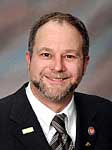
Mitt Romney, who in previous debates had seemed to be a couple of grades above the rest of the Republican candidates when it came to debating skills, lost his composure when Rick Perry questioned his sincerity about stopping illegal immigration. Perry pointed out that Romney had employed illegal immigrants and then, after finding out that they were in the country illegally, continued to employ them for a year longer.
Romney, visibly alarmed, tried to talk over and interrupt Perry, and went so far as to put his hand on Perry’s shoulder while saying that Perry had exceeded 30 seconds (Perry’s time limit).
This confrontation was surprising on two counts: Romney’s lack of composure under pressure and Perry’s ability to score points effectively.
Perry’s lackluster performance in previous debates had dropped him from first place to third in the polls.
Time will tell if Perry’s improved performance in this debate will be enough for him to re-capture the momentum.
Herman Cain was the frontrunner going in to this debate. He has apparently been gaining at the expense of Rick Perry and Michele Bachman, whose polling numbers have been declining as Cain has moved up. Cain is a former executive in the Godfather’s Pizza chain. He is obviously a good salesman, and most good salesmen are good at producing slogans. Cain has a tax plan, which he says he was given by an employee of Wells Fargo in northern Ohio. The slogan Cain has devised for his plan is the “9-9-9 Plan.” It apparently involves a business tax of 9 percent, a personal income tax of 9 percent, and a federal sales tax of 9 percent.
Even before this debate, Cain had seemed unable to answer questions about how his plan would work, answering a question about it at a recent news conference by saying “I have no idea.” Indeed, it frequently seems as if Cain is making up his tax policy as he goes. The other candidates took their shots at Cain’s tax plan in this debate, but what may prove to be more damaging for Cain is that economists are starting to run the numbers for his plan and the numbers don’t look good. A detail that may cause Cain some troubles is that his plan raises taxes for at least 84 percent of Americans and reduces taxes for the richest 1/10 of 1 percent (averaging $8 million in annual income) by an average of $1.7 million.
Another potential problem for Mr. Cain is that he thinks that people who lost their jobs during the recession should “blame themselves.” When Mr. Cain was asked about his statement by the moderator he doubled down on it.
Polling has been done on the Wall Street protesters over the past two weeks. The first poll had 54 percent of Americans approving of the Wall Street protests with 27 percent disapproving and the rest saying they didn’t know enough about it yet to be sure.
The poll that was released Oct. 18 had the approval rate for the Wall Street protests at 63 percent, an increase of 9 percent in one week. Mr. Cain is on record as calling the Wall Street protesters “un-American” because, Mr. Cain says, it is “un-American” to voice any criticism of capitalism.
When Herman Cain propounds his policies, he frequently attributes them to his campaign advisors. With the lone exception of his “9-9-9 Plan,” when he is asked who his advisors are on an issue, he says that is a “secret.” Whomever his advisors are, they seem to be advocating policies that are positioning Mr. Cain to corner the “Tea Party” vote in the Republican primaries. If the “Tea Party” can produce a majority of voters in the Republican primaries and caucuses in enough states to deliver a majority of delegates, Mr. Cain could win the Republican nomination despite his lack of campaign organization. If reports that the Koch brothers are planning to spend $200 million on Mr. Cain’s campaign are true, then Mr. Cain may have a campaign organization very soon.
What is problematic for Mr. Cain about the strategy mentioned above is that while he may succeed in getting a majority of votes in Republican primaries by appealing to the far right, only 4 percent of voters vote in Republican primaries. The positions Mr. Cain is taking now to try to win the Republican nomination could very possibly make him unelectable in a general election.
Paul Schwietering is a resident of Union Township.
